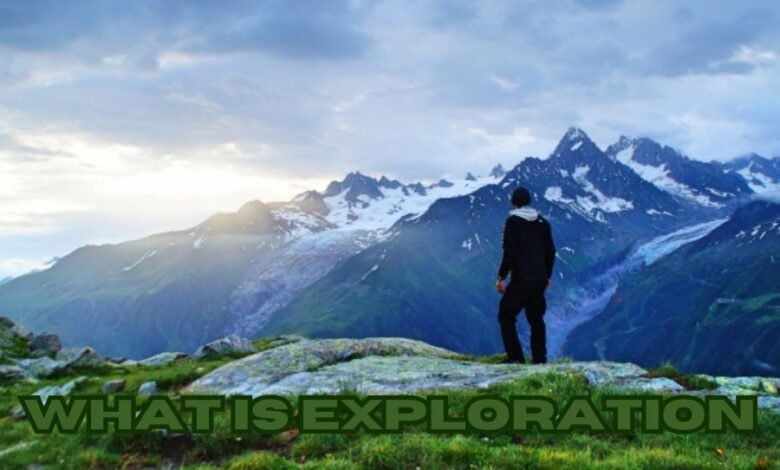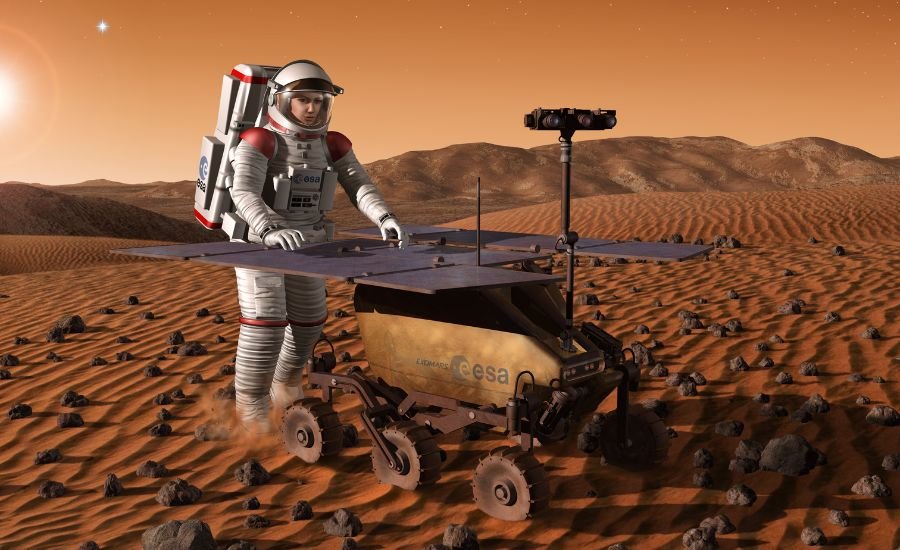
What is exploration? It’s the act of discovering new places, ideas, and experiences. From ancient travelers crossing vast oceans to astronauts stepping on the Moon, exploration has shaped human history. It’s not just about traveling to distant lands; it’s about curiosity, learning, and pushing boundaries.
Exploration happens in many ways—on land, underwater, in space, and even in cities. Scientists explore deep-sea mysteries, adventurers climb the highest mountains, and researchers study uncharted territories. In this blog, we’ll dive deep into the meaning of exploration, its different types, and why it’s so essential for the world.
What Is Exploration? A Journey into the Unknown
Exploration is all about discovering new things, places, and ideas. It can be as simple as a child exploring a backyard or as complex as astronauts traveling to space. People explore because they are curious and want to learn more about the world around them. From the past to the present, exploration has led to remarkable discoveries that changed history.
Humans have explored mountains, oceans, forests, and the deep underground. Scientists continue to explore new technologies, medical breakthroughs, and even the mysteries of space. Exploration helps us grow, solve problems, and better understand our planet. It is a never-ending journey that pushes us beyond our limits.
The History of Exploration: How Humans Have Always Searched for More
Long ago, people embarked on journeys to find food, shelter, and better living conditions. Ancient explorers like Marco Polo and Christopher Columbus traveled worldwide, discovering new lands and cultures. Their adventures led to trade, knowledge sharing, and even world mapping.
In modern times, exploration has taken a new form. Scientists explore the ocean’s depths, astronauts venture into space, and researchers study the human body to find cures for diseases. The spirit of exploration continues to inspire people to push boundaries and uncover the unknown.
Why Exploration Matters: How It Shapes Our World
Exploration is essential because it helps us understand the world better. It leads to new inventions, discoveries, and knowledge that improve our lives. Without exploration, we wouldn’t have advanced technology, medicine, or the ability to travel easily.
Exploring also helps people grow personally. It encourages curiosity, problem-solving, and a love for learning. Whether it’s exploring new places, cultures, or ideas, every discovery adds to human progress. Without it, we would remain stuck in one place, never knowing what lies beyond.
Types of Exploration: From Land to Space and Beyond
There are many different types of exploration. Some people explore new lands and natural wonders, like mountains and forests. Others dive deep into the ocean to study marine life and underwater secrets. Scientists also explore tiny things, like bacteria and cells, to improve medicine and health.
Another exciting form of exploration happens in space. Astronomers use telescopes to study distant planets, while astronauts travel beyond Earth’s atmosphere. Even in cities, urban explorers search for hidden or abandoned places, uncovering forgotten history. Each type of exploration adds to our understanding of the world.
What Is Exploration in Science? Unlocking the Secrets of Nature
Science is one of the most significant fields of exploration. Scientists study the Earth, space, animals, and the human body to answer essential questions. They use experiments and observations to explore how things work and how to improve life.
Medical exploration helps doctors find new treatments for diseases, while space exploration helps us understand planets beyond our own. Scientists also explore the deep sea, where strange creatures and new species are still being discovered. Science never stops exploring, as there is always more to learn.
Underwater Exploration: Discovering the Deepest Mysteries
The ocean covers most of our planet, yet much remains unexplored. Scientists use submarines, robots, and diving equipment to explore the deep sea. They have discovered new species, underwater volcanoes, and shipwrecks that have been lost for centuries.
Underwater exploration is important because it helps us learn about marine life and how the ocean affects the Earth’s climate. It also helps us find valuable resources and protect sea creatures from dangers like pollution and overfishing. The deeper we explore, the more surprises we find.
Space Exploration: How We Travel Beyond Earth
Space exploration allows us to understand the universe beyond our planet. Scientists study the stars, planets, and galaxies to learn how everything began. Astronauts have traveled to the Moon, and space probes have visited Mars and beyond.
Space missions help us discover new technologies that improve life on Earth. Satellites allow us to predict weather, improve communication, and even track natural disasters. As technology advances, future space exploration may lead to humans living on other planets.
Urban Exploration: Finding Hidden Gems in Our Cities
Urban exploration is discovering abandoned buildings, tunnels, and hidden places in cities. Explorers often visit forgotten landmarks, old factories, and underground passageways to learn about history and architecture.
While urban exploration is exciting, it can also be risky. Some locations are unsafe, and others may have legal restrictions. However, it provides a unique way to connect with the past and uncover forgotten stories when done responsibly.
Geological Exploration: Unearthing the Earth’s Hidden Treasures
Geologists explore the Earth’s surface and underground to understand its structure. They study rocks, minerals, and fossils to learn about the planet’s history, which helps them find valuable resources like gold, oil, and natural gas.
Geological exploration is also essential for predicting natural disasters like earthquakes and volcanic eruptions. By understanding how the Earth changes, scientists can help keep people safe and better use natural resources.
The Role of Technology in Modern-Day Exploration
Technology has changed the way we explore. Satellites, drones, and robots allow us to reach places humans cannot. Scientists use high-tech tools to map the ocean floor, explore space, and study the deepest parts of the Earth.
Virtual reality and artificial intelligence are also helping explorers. These tools allow people to experience places they may never visit. Thanks to technology, exploration has become faster, safer, and more exciting than ever before.
The Dangers and Challenges of Exploration
Exploration is exciting, but it also comes with risks. Adventurers climbing mountains face extreme weather, while deep-sea explorers deal with high pressure and darkness. Even astronauts must survive in space with limited resources and no oxygen.
Despite the dangers, explorers keep pushing forward. They train, use advanced technology, and take safety precautions to reduce risks. Overcoming challenges makes exploration valuable—it helps us grow, learn, and discover new possibilities for the future.
What Is Exploration for Animals? How Wildlife Explores Their World
Animals explore their surroundings to find food, shelter, and mates. Birds fly long distances during migration, while sea creatures travel across oceans. Even tiny insects, like ants, explore in groups to search for food.
Exploration helps animals survive in their environment. Some use their senses, like smell and sound, to discover new places, while others rely on instincts to navigate unknown areas. Studying animal exploration teaches us about nature and how species adapt to their surroundings.
Famous Explorers Who Changed History Forever
Many explorers have made history with their discoveries. Christopher Columbus sailed across the Atlantic, leading to the European discovery of the Americas. Marco Polo traveled to Asia and introduced Europe to new cultures and goods.
Modern explorers continue to make incredible discoveries. Scientists explore deep oceans, astronauts travel to space, and researchers uncover ancient civilizations. Their work helps us understand our world and inspires future generations to explore.
The Future of Exploration: What’s Next for Humanity?

Exploration is far from over. Scientists are working on new technologies to explore the ocean’s deepest trenches and send humans to Mars. Space agencies like NASA and SpaceX plan missions that could change humanity’s future.
Advances in artificial intelligence and robotics will also make exploration safer and more efficient. As we continue to push boundaries, subsequent great discoveries may come from places we have never imagined. The future of exploration is limitless.
How to Become an Explorer: Steps to Start Your Own Adventure
Anyone can be an explorer! It starts with curiosity and a willingness to learn. You can begin by exploring your neighborhood, hiking in nature, or traveling to new places. The more you discover, the more you grow.
To become a professional explorer, you can study geography, science, or engineering. Some explorers work as scientists, astronauts, or archaeologists. No matter your path, the key to exploration is to stay curious and never stop learning.
See Also: Score Chaser
What Is Exploration in Education? The Power of Learning Through Discovery
Exploration isn’t just about traveling—it’s also about learning. In education, exploration encourages students to ask questions, experiment, and discover new ideas. This helps them better understand subjects and develop problem-solving skills.
Teachers use exploration-based learning to make lessons more exciting. Hands-on experiments, field trips, and interactive activities allow students to experience learning in a fun and engaging way. Education through exploration makes knowledge more meaningful and long-lasting.
Exploring Without Leaving Home: Virtual and Digital Exploration
Thanks to technology, you don’t need to travel far to explore. Virtual reality, online maps, and live-streamed expeditions allow people to discover the world from their homes. You can visit famous landmarks, explore deep oceans, or even take a trip to space—all through a screen.
Digital exploration is beneficial for those who can’t travel. It allows students, researchers, and adventure lovers to experience new places without the cost or risks of physical exploration. As technology improves, digital exploration will continue to grow, bringing the world closer than ever before.
Conclusion
Exploration is a big part of life. People search for new places and ideas, from deep oceans to outer space. It helps us learn, grow, and solve mysteries about our world. Without exploration, we would never have discovered new lands, incredible inventions, or exciting knowledge.
The best part is that anyone can be an explorer! You don’t need a spaceship or a submarine—just a curious mind. Whether you travel to new places, read about history, or try new things, you are exploring. The world is a whole of wonders, and there is always something new to discover!
FAQs
Q: What is exploration?
A: Exploration is discovering new places, ideas, or knowledge. It can happen on land, in the ocean, in space, or through learning and research.
Q: Why is exploration critical?
A: Exploration helps us learn new things, solve problems, and improve our world. It leads to scientific discoveries, new inventions, and a better understanding of nature and history.
Q: What are the different types of exploration?
A: The main types include geographical, underwater, space, urban, and scientific exploration. People also explore ideas, history, and even their own personal interests.
Q: Who are some famous explorers?
A: Famous explorers include Christopher Columbus, Marco Polo, Neil Armstrong, and Jacques Cousteau. They made significant discoveries on land, at sea, and in space.
Q: How can I become an explorer?
A: Anyone can explore! Start by being curious, learning about new places, and asking questions. Travel, read books, and try new experiences to discover more about the world.
Q: What dangers do explorers face?
A: Explorers can face harsh weather, wild animals, dangerous terrains, or lack of resources. That’s why they train well and use special tools to stay safe.
Q: What is the future of exploration?
A: The future of exploration includes deep-sea research, space travel to Mars, and even exploring new technologies and virtual worlds. Scientists and adventurers are always looking for the subsequent significant discovery!
Stay Updated On: UrbanLifestyleVibe





